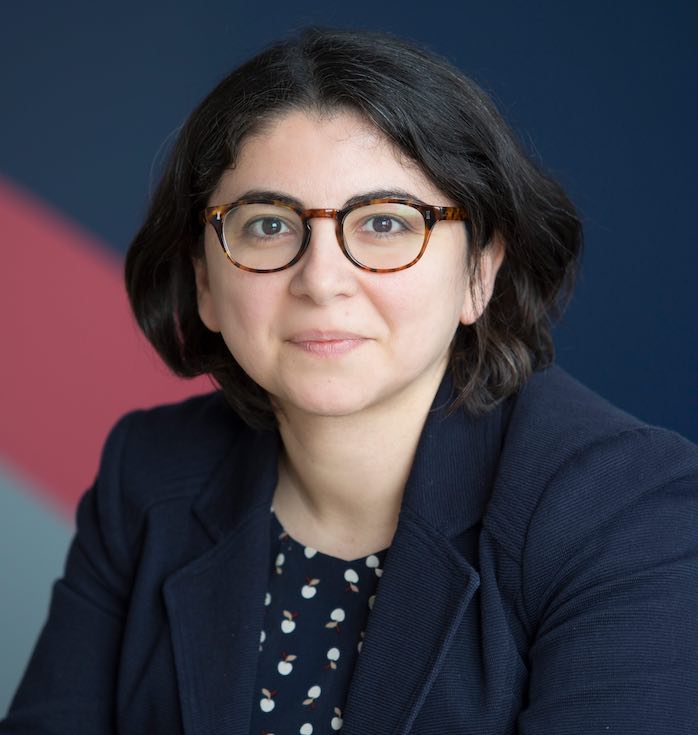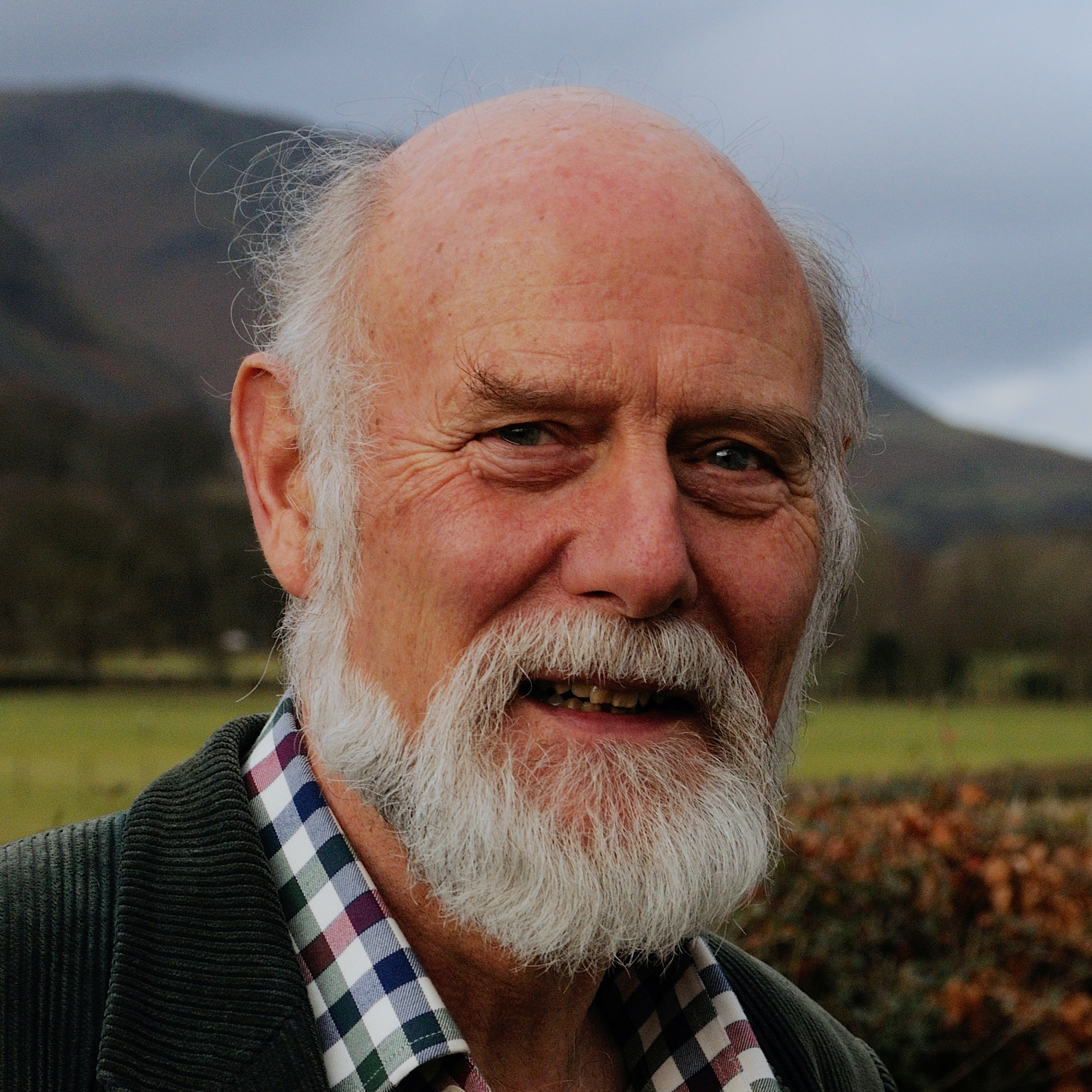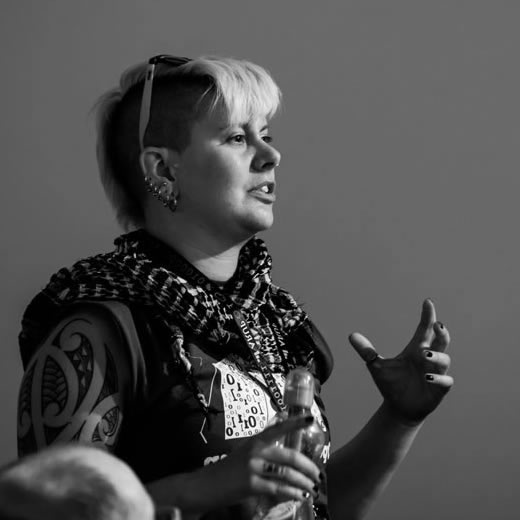Faculty 2019
Our lecturers are hand-picked for their in-depth expertise and ability to convey their experiences to maximise the learning experience of our delegates. They also are friendly, approachable, and able to have a good laugh! The intensive, yet informal, atmosphere at the XML Summer School gives delegates the opportunity to pick the brains of our expert faculty, both during the classes and afterwards over a meal or in the bar.
The Faculty Board operates under the stewardship of Course Director, Dr Lauren Wood. Each year it decides on the appropriate courses and curriculum and invites the fantastic array of experts to prepare and deliver classes.
Adam Retter | Dr Andy Seaborne | Dr Cigdem Sengul | Dr David Shotton | Debbie Lapeyre | Florent Georges | Gary Cornelius | Graham Klyne | Jen Williams | Jirka Kosek | Professor John Chelsom | Kal Ahmed | Dr Lauren Wood | Matt Patterson | Nic Gibson | Norm Walsh | Peter Crocker | Dr Peter Flynn | Dr Peter Murray-Rust | Priscilla Walmsley | Dr Stuart Williams | Tomos Hillman | Tony Graham |
Faculty Board Members
- Debbie Lapeyre
-

Debbie Lapeyre is a developer of XML Tag Sets (vocabularies) who designs and writes the schemas (DTD, XSD, RELAX NG) that model those vocabularies. She serves as the architect/design team member for ANSI/NISO Z39.96-2015 JATS: Journal Article Tag Suite, which is currently the worldwide de facto standard for XML tagging of journal articles. She performs the same roles for BITS (Book Interchange Tag Suite), the NLM sponsored book tag set based on JATS and also for NISO STS (NISO Standards Tag Suite), which is in development for tagging national and international standards. As a document-oriented publishing analyst, Debbie helps clients to analyze their information management, retrieval, and distribution/publication requirements and translates these requirements into functioning production systems, based on XML technologies. As a senior XSLT and XSL-FO consultant for Mulberry Technologies, Inc., she designs both pages and specifications for complex XSLT transforms and stylesheets as well as developing prototype XSLT applications. Ms. Lapeyre has been working with XML, XSLT, and XPath since their inception and with SGML (XML's predecessor) since 1984. She is a member of the XML Guild and a co-chair of Balisage: The Markup Conference, She previously co-chaired "Extreme Markup Languages", "Markup Technologies", and the annual international "SGML/XML'XX Conference". Debbie teaches XML, XSLT, XSL-FO, Schematron, What-is-XML-and-Why-Should-You-Care, and XML print workflows at venues all over the English-speaking world.
Debbie teaches in the Hands-On Introduction to XML course.
- Professor John Chelsom
-

John is the XML Summer School Symposiarch. He founded the Summer School with colleagues from CSW in 2000 and has taught every year since.
John chairs the Hands-On Introduction to XML course and the XML Primer course and teaches in the Hands-On Introduction to XML course and the XML Primer course.
- Dr Lauren Wood
-

Lauren Wood is the Course Director for the XML Summer School, and Managing Editor for XML.com. She is also an independent XML consultant with many years of experience in a variety of roles and areas. She is currently working on legislative systems for Xcential Corporation, which involves programming and schema design and implementation for various legislative systems. She is the managing editor and programmer for XML.com as well as a member of the program committee for MarkupUK and Balisage.
While with Sun Microsystems she was program manager for an innovative cloud+mobile project that had many of the features of today's smartphone systems, as well as representing Sun in the Liberty Alliance, and working on other identity and privacy-focussed projects. As Director of Product Technology for SoftQuad, she had significant input into SoftQuad’s XMetaL XML editor. She chaired the US XML Conference from 2001 to 2005, chaired the W3C DOM Working Group from its inception to the end of Level 2, and played an active role in many other OASIS and W3C technical committees.
Lauren has been a Faculty member of the Summer School since the beginning. She occasionally blogs on issues technical and otherwise.
Lauren chairs the Hands-on Digital Publishing With XSLT course and teaches in the Hands-on Digital Publishing With XSLT course.
- Norm Walsh
-

Norman Walsh is a Lead Engineer at MarkLogic Corporation where he helps to develop APIs and tools for the world's leading enterprise NoSQL database. Until recently, Norm has also been an active participant in a number of standards efforts worldwide: he was chair of the XML Processing Model Working Group at the W3C where he was also co-chair of the XML Core Working Group. At OASIS, he was chair of the DocBook Technical Committee for many years.
With two decades of industry experience, Norm is well known for his work on DocBook and a wide range of open source projects.He is the author of DocBook: The Definitive Guide.
Norm teaches in the Hands-on Digital Publishing With XSLT course and the Publishing Techniques with XML course.
- Dr Peter Flynn
-

Peter Flynn has over 40 years experience in IT and information management. He recently retired from the electronic publishing unit at University College Cork to spend more time with his text management consultancy, Silmaril Consultants, where he works mainly with industrial documentation, publishing systems, and text research applications.
Peter was a member of the W3C XML Special Interest Group, a member of the IETF Working Group on HTML, and Ireland’s first webmaster. He is maintainer of the XML FAQ and author of The World-Wide Web Handbook (ITCP, 1995), Understanding SGML and XML Tools (Kluwer, 1998), and Formatting Information (TUG, 2002). His PhD was on User Interfaces to Structured Documents at the Human Factors Research Group in UCC.
In what’s left of his time he likes to cook, read, and listen to early music.
Peter chairs the Trends and Transients course and teaches in the Hands-on Digital Publishing With XSLT course.
- Priscilla Walmsley
-

Priscilla Walmsley is a senior developer and managing director at Datypic, specializing in XML architecture and implementation. She provides contract development and training services in XML core technologies (XQuery, XSLT, XML Schema), content management and electronic publishing.
Priscilla was a member of the W3C XML Schema Working Group from 1999 to 2004, where she served as an Invited Expert. She is the author of Definitive XML Schema (Prentice Hall PTR, 2012), and XQuery (O'Reilly Media, 2015).
Priscilla chairs the XSLT and XQuery course and teaches in the XSLT and XQuery course.
Faculty Members
- Adam Retter
-

Adam Retter is both an independent consultant and a co-founder of eXist Solutions GmbH. Adam has been working with XML technologies and contributing to eXist since 2005. He has almost 15 years of experience in building Web Applications and Distributed Application Architectures. Adam has worked with many different technologies and programming languages in the past, but has been particularly enjoying XQuery and Scala over the last few years. Adam is passionate about Open Source and Open Standards. As such he is an invited expert on the W3C XQuery Working Group and sits on the peer-review panels of the XML Prague, Balisage, and XML London conferences. Adam also founded the EXQuery project in early 2009, and has since been working with the XML community and as part of the EXPath project to standardise and improve XML application development with XQuery, XSLT, and XPath.
Adam's homepage is at http://www.adamretter.org.uk
Adam teaches in the XSLT and XQuery course.
- Dr Andy Seaborne
-

Andy has been working on the storage and query of RDF data, first as a researcher at HPLabs, then at Epimorphics and now at TopQuadrant. Andy has been a long time contributor to the SPARQL standardization process. He started as a member of the W3C RDF Data Access Working Group and was a member of the W3C SPARQL Working Group. Andy co-edited the query language specification and lead the proposal submission for SPARQL Update. He also served on the W3C RDF Working Group. He also works on Apache Jena, an open source RDF framework for Java, where he contributes to the query engine, ensuring that complete implementations of the standards are available, and several persistent storage sub-systems.
Andy has a PhD in Computer Science from the Computer Laboratory at the University of Cambridge.
Andy teaches in the Linked Data course.
- Dr Cigdem Sengul
-

Cigdem Sengul is a Senior Researcher in Nominet, working on privacy, trust and security in Internet of Things. She is the co-author MQTT-TLS profile of ACE (Authentication and Authorisation in Constrained Environments) in IETF. She also contributed to the technical specifications the UMA (User-Managed Access) Work Group in Kantara Initiative.
She has more than 10 years of experience in research and development in mobile and wireless networks in both academia and industry. Between 2012-2015, she was a Senior Lecturer in Oxford Brookes University, lecturing on wireless and mobile networks, and carrying out research on energy and interference efficiency in wireless mobile networks, and Internet of Robotic Things. From 2008-2012, she was with Telekom Innovation Labs of Deutsche Telekom as a Senior Research Scientist leading projects in Wireless Mesh Networks. Her work has been published in more than 50 journal and conference publications.
She received MS and PhD degrees in Computer Science from University of Illinois at Urbana-Champaign (UIUC) in 2003 and 2007, respectively. Her research was funded by Fulbright, Department of Computer Science, UIUC and Vodafone fellowships.
Cigdem is a passionate advocate of increasing diversity awareness in computing. She is the Communication and Outreach Chair of ACM Women Europe. She collaborates with the Micro:bit Educational Foundation to support their mission of teaching coding to school children. She is the co- author of the Networking with the Micro: bit book.
Cigdem teaches in the Trends and Transients course.
- Dr David Shotton
-

David Shotton is Director of OpenCitations, a scholarly infrastructure organization that is dedicated to the publication of open bibliographic citation data by the use of Semantic Web (Linked Data) technologies, and is engaged in advocacy for open citations. It provides the OpenCitations Data Model and the SPAR (Semantic Publishing and Referencing) Ontologies for encoding scholarly bibliographic and citation data in RDF, and open software of generic applicability for searching, browsing and providing APIs over RDF triplestores. It has developed the OpenCitations Corpus (OCC) of open downloadable bibliographic and citation data recorded in RDF, and a system and resolution service for Open Citation Identifiers (OCIs), and it is currently developing a number of Open Citation Indexes using the data openly available in third-party bibliographic databases, of which the first is COCI, the OpenCitations Index of Crossref open DOI-toDOI citations. OpenCitations maintains the OpenCitations Blog and the Semantic Publishing Blog.
Dr Shotton is a founding member of the Initiative for Open Citations, which undertakes advocacy for open citations, and of Force11, a scholarly community that aims to bring about change in modern scholarly communications through the effective use of information technology. His past research included molecular and cell biological investigations of protein and membrane structure in health and disease, involving protein sequencing and X-ray crystallography, protein chemistry and biophysics, and advanced light and electron microscopy techniques, particularly video and confocal light microscopy and freeze fracture electron microscopy. He was involved in undergraduate and graduate teaching between 1966 and 2011, obtaining a University Excellence in Teaching award from the University of Oxford for this work in 2008.
David teaches in the Trends and Transients course.
- Florent Georges
-

Since Florent discovered IT back in the 90's, he has always been fascinated by how data are stored and represented. He naturally came to XML, but also to RDF and Semantic Technologies.
Florent contributed to many open-source and community-driven projects in the field of XML. His main interests are in the field of XSLT and XQuery extensions and libraries, packaging, unit and functional testing, and portability between several processors. But it is only with the advent of NoSQL technologies and transactional triplestores that Florent started to consider using Semantics and the flexibility of its data model in commercial projects.
Florent is an invited expert in the XSLT working group at W3C, since 2009. Florent founded EXPath the same year, and is also the chair of the EXPath community group at W3C, defining “standard” extension function libraries that can be used in XPath (so in XSLT, XQuery and XProc as well). Florent and H2O Consulting are members of the XML Guild, "a consortium of some of the best independent XML consultants in the world." He worked for two years for MarkLogic, the "Enterprise NoSQL Database", helping many of their clients with their data projects and challenges.
H2O Consulting website is at http://h2oconsulting.be/. Florent is currently working as a Semantic Data Architect, helping a leading banking group in Paris defining their new data management strategies and systems.
Florent teaches in the XSLT and XQuery course.
- Gary Cornelius
-

Gary Cornelius is the founder of Rapport Network CIC, which is an established Community Interest Company that produces assisted living applications for early-stage dementia and for people with other cognitive impairments who find it challenging to live independently. Gary has experience of IT consultancy and development for the NHS, with a particular interest in health informatics, middleware systems, and the Internet of Things.
Gary is an experienced XML consultant and solutions architect. Gary has been an active contributor to XML mailing lists and standards for over a decade and enjoys technical project management involving XML. He studied publishing, graphic communication management, and digital imaging.
Gary was involved with the engineering of many XML based innovations and products over the years such as XML base databases, CMS systems, Electronic Health Records Systems, application performance managements systems, various multimodal user interface systems and several knowledge management and decision support systems. He has developed several XML and web related training courses for IT engineers and managers.
In 2002 Gary was a delegate attending the XML Summer School and for the following years he has returned as a speaker and instructor.
Gary teaches in the Hands-On Introduction to XML course.
- Graham Klyne
-

Graham Klyne is a research software engineer at Oxford University, in the multidisciplinary e-Research centre. Before coming to Oxford he was a commercial software developer, working on applications covering industrial process control, 3D motion capture for medical use, computer-aided mechanism design, computer networking, financial trading systems and home automation. While working for a messaging application start-up, he was involved in defining Internet (IETF) standards for email enhancements and content negotiation, which led by a roundabout route to participation in defining Web (W3C) standards for RDF, which underpins the Semantic Web and linked data on the web.
Graham came to Oxford to work on applying Semantic Web technology to a metadata-rich biological image database. During his time at Oxford, he has worked on linked data designs and applications for topics from bioinformatics to classical art to scientific workflow description to digital music to historical data. A common underlying theme has been management of research data and metadata.
In a personal capacity, Graham is author of an open-source linked data notebook tool Annalist], which he’s used extensively for prototyping linked data model designs.
Graham teaches in the Trends and Transients course.
- Jen Williams
-

Jen Williams is a software developer and data consultant at Swirrl - specialists in publishing Linked Data for the public sector. She spends the majority of her time devising and building linked data management and publishing solutions.
Together with Kal Ahmed, she is a lead developer of DataDock - an online service that creates unlimited navigable linked open data portals from CSV spreadsheets. She also helps organise the Bristol Open Data community group.
Jen teaches in the Linked Data course.
- Jirka Kosek
-

Jirka is a freelance consultant, lecturer, writer, university teacher, open source developer and standards maker. He has written many books and articles about XML and Web technologies. In past 15 years he had developed many XML based publishing systems for his customers and led hundreds of XML and XSLT classes.
Jirka is and was invited expert in W3C in several working groups including XML Core WG, HTML WG, CSS WG and XSLT WG. He served as a co-editor of several specifications. For many years he has been active member of OASIS where he worked on future versions of DocBook schema. He is also representing Czech Republic in ISO/IEC JTC1/SC34.
He contributes to several open-source projects including DocBook XSL stylesheets. In XML community he is probably best known for organizing XML Prague conference. You can find more about his work on his blog and web-site.
Jirka teaches in the XSLT and XQuery course.
- Kal Ahmed
-

Kal Ahmed is the Data Architect for the Dictionaries department at Oxford University Press. Prior to joining OUP, he was founder of NetworkedPlanet, a software house specializing in standards-based knowledge and content management solutions for Microsoft platforms. In previous jobs he has worked for Xerox in XML document management systems; for Ontopia in developing and deploying Topic Maps-based solutions; and as an independent consultant with a focus on XML, Topic Maps and RDF.
Kal is a contributor to several open-source projects relating to RDF including dotNetRDF, an open-source platform for RDF-based applications that use the Microsoft .NET framework; DataDock, a platform for publishing CSV data as Linked Open Data; and BrightstarDB, an open-source RDF triple-store for .NET as well as playing around in a few other interesting applications in linked data over on github (github.com/kal). What is left of his spare time is now entirely consumed by photographing and board games.
Kal teaches in the Linked Data course.
- Matt Patterson
-

Most recently CTO of German streaming-video startup Tape.tv, Matt has been building for the web for more than 15 years. A full-stack developer, over the years he has worked for the BBC, been involved with a critically acclaimed indie videogame, explored data visualisations of the evolution of Wordsworth's The Prelude, helped the UK government reboot its approach to the web as part of the GOV.uk Alpha and Beta team, helped Europe's biggest municipal authority build a Civic Dashboard, transformed a large biographical dictionary from Word files to a website, co-organised UIKonf (Europe's leading iOS developer conference), and spent three years helping lead the charge for artist-driven music television at Tape.tv. He is currently exploring new ideas in the Digital Humanities. He has spoken at conferences on both sides of the Atlantic, and once co-authored a book about CSS. He also helps out at the Ruby Monstas, a study group born out of Rails Girls Berlin.
He has long experience with web development and XML technologies and a wealth of knowledge about transforming and working with structured and semi-structured data. If you have data locked away in Word, Excel, OpenOffice, CSV, databases or XML that you want to publish on the web he can teach you how to get to it, work with it, and begin to publish it.
Matt teaches in the Hands-on Digital Publishing With XSLT course.
- Nic Gibson
-

Nic Gibson is an consultant for MarkLogic EMEA, working with large customers to develop content and data driven applications using XML, JSON, XQuery and XSLT.
Prior to joining MarkLogic, Nic worked on XML and digital publishing technologies for a variety of publishers and organisations that publish. He specialised in advising publishers on suitable uses of XML and the implementation of complex transformation pipelines using XSLT and XProc.
Most recently Nic has worked for Cambridge University Press to create a system for transformation and normalisation of content before ingestion into the academic CMS and for LexisNexis UK as Content Architecture Lead, leading a team of content architects and developers who manage the schemas and transformations used to publish tens of thousands of legal precedents to the web and print.
Nic teaches in the Publishing Techniques with XML course.
- Peter Crocker
-

Peter, who is making his first appearance at the XML Summer School, is the Chief Executive Officer of Oxford Semantic Technologies, a spin-out of the University of Oxford’s Knowledge Representation Group. Oxford Semantics licenses an innovative in memory RDF store and reasoning engine called RDFox.
Peter is working with a number of clients to help find answers to their business questions using RDFox. Oxford Semantics has already made progress in its application: as a knowledge graph to power analytics and question answer systems; for data integration, taking advantage of the diverse data structures and relationships that can be represented in a graph to unify silos of information; in regulatory compliance, using its powerful rules to check for compliance within the data; and for configuration engines, precomputing the possible configurations of components to then address a specific set of requirements.
Peter joined Oxford Semantics in January 2018 after working at IBM for 18 years, where he was most recently the Program Director for IBM Watson IoT Platform Product Management. Peter brings many years’ experience in product development, product architecture, technical sales and as a worldwide consultant, all predominantly in the enterprise integration and event processing space. Peter has both a Master of Engineering Science and Master of Computer Science from the University of Oxford.
He enjoys sailing and building things with his children, the latest project being a miniature submarine.
Peter teaches in the Linked Data course.
- Dr Peter Murray-Rust
-
Photo attribution: Slowking under the GFDL 1.2 license, via Wikimedia Commons.
For 60 years PMR has pursued the vision of a free global knowledge resource. In the 1970's at Stirling University he pioneered the idea of combining data in isolated scientific papers into a single database where new scientific patterns emerged. While working in pharma he realised how scientific knowledge was held back by conventional print methods of communication and was a very early enthusiast of the WorldWideWeb. In 1994 he was blown away by Tim Berners-Lee's presentation of the Semantic Web (WWW1) and this philosophy has been the driving force to help create a new egalitarian knowledge-based world. He was an early advocate of online communities as a way of creating and sharing knowledge such as the Virtual School of Natural Sciences (1994) and has formalised his activities as the triad: ACT, (Activism, Community, Tools).
In 1997 he recognised XML as a philosophy and technology that could help to change the way we think and ran the XML-DEV mailing list to support a rigorous, achievable and community-based approach. This culminated in the list-enabled 1-month development of the SAX-1 protocol by David Megginson and 100 others. With Henry Rzepa he developed and implemented the first XML language Chemical Markup Language (CML) - a universal language for modelling chemical knowledge.
After moving to Cambridge he became involved in eScience and developed CML to support materials and polymers, with a view to replacing print with dynamic, often automatic, knowledge objects. Unfortunately much of the potential is still held back by conservative views and restrictive practices. He therefore had to add a political side to his activities, being an active member of the Open Knowledge Foundation (e.g. the Panton Principles for Open Scientific Data, 2009 drafted in the nearby pub). The combination of ACT was then wonderfully supported by a 2-year Fellowship from the Shuttleworth Foundation and he continues to work with this community.
For more details see http://en.wikipedia.org/Peter_Murray-Rust
Peter teaches in the Trends and Transients course.
- Dr Stuart Williams
-

Dr Stuart Williams is a linked data practitioner and enthusiast who has have been working in the field of semantic web and linked data standards, technologies, and applications for more than 15 years. Prior to joining Epimorphics in 2009, Stuart was a member of the Semantic Web research group at HP Labs in Bristol where he worked on the application of semantic web technologies to the description and coordination of web services (so-called semantic web web services); software configuration management; and the management of system access entitlements in a regulated environment. He also served as co-chair of the W3C TAG for a number of years. At Epimorphics he works with a number of public and private clients helping them to model and publish their data as open linked data.
Even longer ago, Stuart was a major contributor to the protocol specifications of the IrDA, who promoted a set of wireless infrared data communication standards for consumer devices that have largely been displaced from today's gadgets by bluetooth and wifi.
Stuart teaches in the Linked Data course.
- Tomos Hillman
-

Tom has a decade of experience with XML, XSLT, XQuery and related technologies, particularly in the field of digital publishing, quality analysis, and transformation. He has given training courses to various institutions including publishers, universities and the UN, as well as being a founding committee member of the Markup UK conference.
Originally from Wales, he now lives with his family in Yorkshire. Tom doesn't like to conform to stereotypes, but a deep love of Star Wars, board games, fiction and animation sometimes make this hard.
Tomos teaches in the Publishing Techniques with XML course.
- Tony Graham
-

Tony Graham is a Senior Architect with Antenna House, where he works on their XSL-FO and CSS formatter, cloud-based authoring solution, and related products. He also provides XSL-FO and XSLT consulting and training services on behalf of Antenna House.
Tony has been working with markup since 1991, with XML since 1996, and with XSLT/XSL-FO since 1998. He is Chair of the Print and Page Layout Community Group at the W3C and previously an invited expert on the W3C XML Print and Page Layout Working Group (XPPL) defining the XSL-FO specification, as well as an acknowledged expert in XSLT. Tony is the developer of the 'stf' Schematron testing framework and also Antenna House's 'focheck' XSL-FO validation tool, a committer to both the XSpec and Juxy XSLT testing frameworks, the author of "Unicode: A Primer", and a qualified trainer.
Tony's career in XML and SGML spans Japan, USA, UK, and Ireland. Before joining Antenna House, he had previously been an independent consultant, a Staff Engineer with Sun Microsystems, a Senior Consultant with Mulberry Technologies, and a Document Analyst with Uniscope. He has worked with data in English, Chinese, Japanese, and Korean, and with academic, automotive, publishing, software, and telecommunications applications. He has also spoken about XML, XSLT, XSL-FO, EPUB, and related technologies to clients and conferences in North America, Europe, Japan, and Australia.
Tony teaches in the Publishing Techniques with XML course.